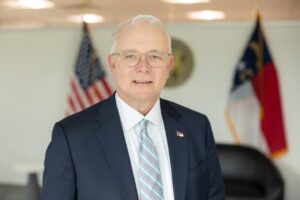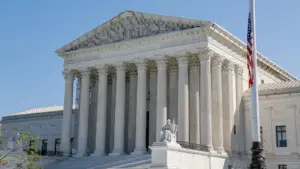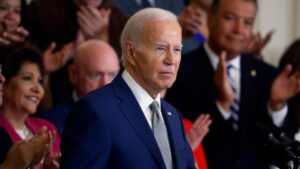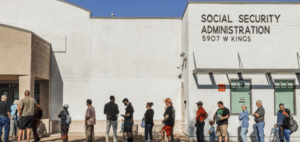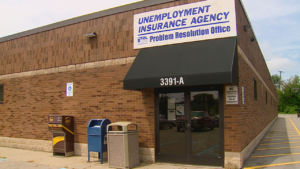The Biden administration's push for a stringent nicotine regulation on cigarettes has drawn criticism from various quarters, including law enforcement and agricultural sectors, who warn of economic devastation and the potential rise of black-market activities as a result.
Biden Administration's Controversial Tobacco Regulation Sparks Outrage and Economic Concerns
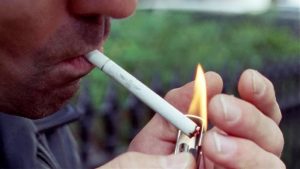
Biden Administration's Controversial Tobacco Regulation Sparks Outrage and Economic Concerns
A proposed FDA rule limiting nicotine in cigarettes could lead to a ban on most tobacco products, igniting fierce debate over its economic and social implications.
The Biden administration is facing mounting backlash over a proposed rule by the Food and Drug Administration (FDA) that aims to impose strict limits on nicotine levels in cigarettes, effectively barring nearly all commercially available tobacco products in the United States. Critics argue that this move could lead to devastating economic consequences, including the destruction of agricultural jobs and the potential for a surge in black-market tobacco sales.
The proposed regulation, which concluded its review on January 3 before the transition to the administration of President-elect Donald Trump, is heralded by some as a means to drastically reduce smoking rates, with estimates suggesting a decrease to just over 1% by the year 2100. However, experts across various sectors warn of its possible negative ramifications.
Former ATF assistant director Richard Marianos expressed concern that the rule would effectively serve as "a gift to criminals,” as it could pave the way for unregulated black-market cigarette sales. He emphasized that law enforcement agencies lack adequate resources to combat the trafficking of illicit cigarettes. "Prohibition, or any type of change in a product like this, never works. It hasn’t worked in the past, and it’s going to create problems," he stated.
The economic implications of the regulation are equally alarming. A report from Chmura Economics & Analytics projected a staggering $24 billion loss in combined tax revenue for federal, state, and local governments, along with the potential elimination of more than 150,000 jobs across industries tied to tobacco farming and retail. These losses would have significant repercussions on the economies of tobacco-dependent states like North Carolina, where agriculture operates on diverse revenue streams including tobacco, vegetables, and livestock.
Ray Starling, general counsel for the North Carolina Chamber of Commerce, highlighted the disproportionate impact on farmers who require tobacco for their respective livelihoods. He pointed out that eliminating tobacco farming from their operations could drive these farmers deeper into financial distress. Additionally, he criticized the FDA for not considering the broader implications of the rule, which could result in states losing $21 billion from the 1998 Tobacco Master Settlement Agreement, a crucial funding source for public education and health initiatives.
As the rule garners opposition from conservatives and free-market advocates who argue against government overreach in personal choice, the Biden administration’s tobacco regulation continues to raise contentious debates over its economic, social, and ethical ramifications. Critics maintain that while public health is important, the stance taken by the government could inadvertently enrich criminal enterprises while penalizing law-abiding citizens and dismantling essential industries.
The proposed regulation, which concluded its review on January 3 before the transition to the administration of President-elect Donald Trump, is heralded by some as a means to drastically reduce smoking rates, with estimates suggesting a decrease to just over 1% by the year 2100. However, experts across various sectors warn of its possible negative ramifications.
Former ATF assistant director Richard Marianos expressed concern that the rule would effectively serve as "a gift to criminals,” as it could pave the way for unregulated black-market cigarette sales. He emphasized that law enforcement agencies lack adequate resources to combat the trafficking of illicit cigarettes. "Prohibition, or any type of change in a product like this, never works. It hasn’t worked in the past, and it’s going to create problems," he stated.
The economic implications of the regulation are equally alarming. A report from Chmura Economics & Analytics projected a staggering $24 billion loss in combined tax revenue for federal, state, and local governments, along with the potential elimination of more than 150,000 jobs across industries tied to tobacco farming and retail. These losses would have significant repercussions on the economies of tobacco-dependent states like North Carolina, where agriculture operates on diverse revenue streams including tobacco, vegetables, and livestock.
Ray Starling, general counsel for the North Carolina Chamber of Commerce, highlighted the disproportionate impact on farmers who require tobacco for their respective livelihoods. He pointed out that eliminating tobacco farming from their operations could drive these farmers deeper into financial distress. Additionally, he criticized the FDA for not considering the broader implications of the rule, which could result in states losing $21 billion from the 1998 Tobacco Master Settlement Agreement, a crucial funding source for public education and health initiatives.
As the rule garners opposition from conservatives and free-market advocates who argue against government overreach in personal choice, the Biden administration’s tobacco regulation continues to raise contentious debates over its economic, social, and ethical ramifications. Critics maintain that while public health is important, the stance taken by the government could inadvertently enrich criminal enterprises while penalizing law-abiding citizens and dismantling essential industries.







